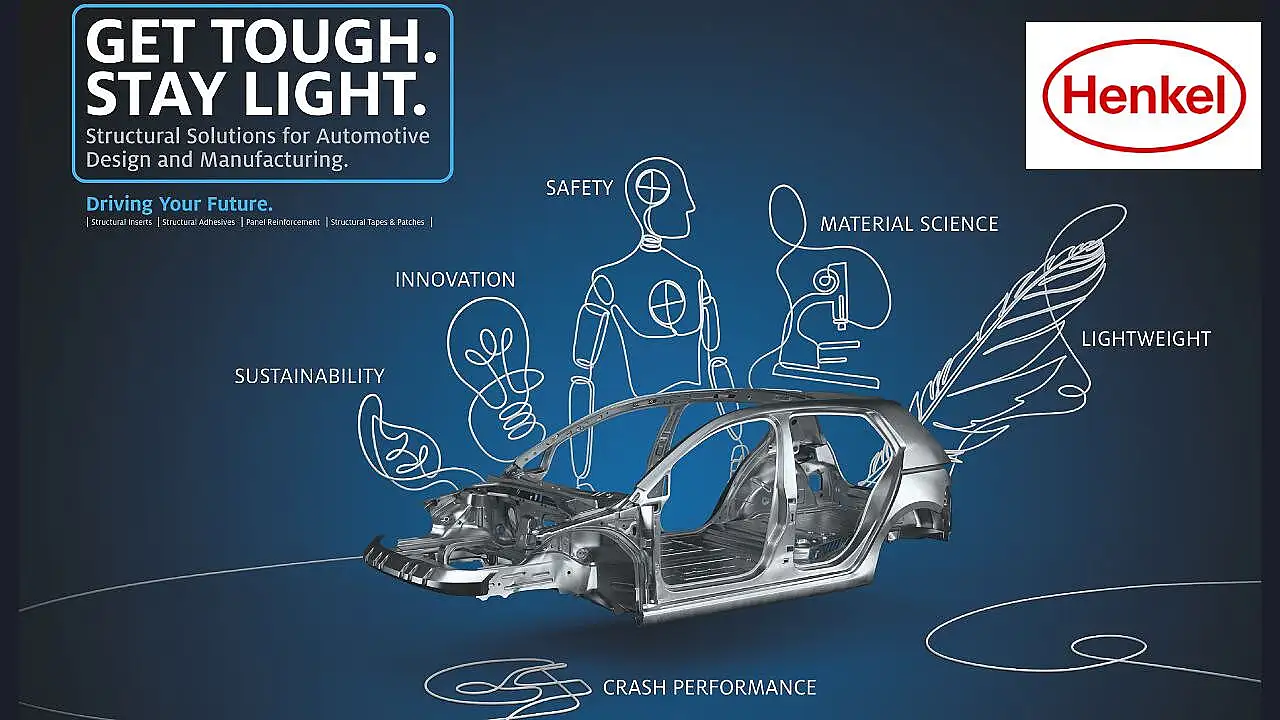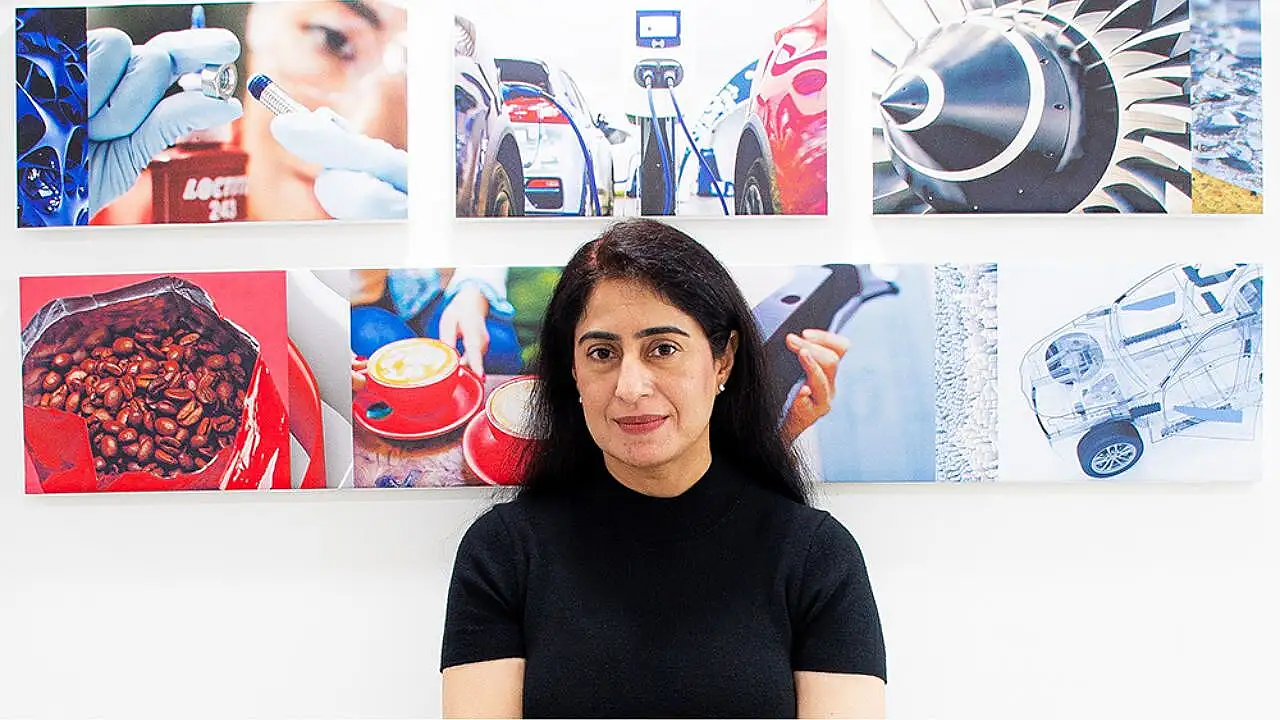
You may not see, touch, or even notice the products in a car or commercial vehicle, yet their presence is indispensable. Should any of these products fail, the impact on the vehicle’s occupants could be significant—ranging from leaks to annoying rattles, noise, and vibrations that disrupt ride quality, comfort and safety. Ultimately, such failures could accelerate the vehicle's deterioration, thereby diminishing its residual value. These crucial products are manufactured by Henkel Anand India Private Limited (HAIPL), a leading force in the production of high-performance adhesives, sealants, structural foams, and sound-deadening materials for the automotive industry.
Identifying the root cause of these issues is often a challenging task, and resolving them can be even more complex due to the precision and critical placement of these components. The importance of HAIPL's products cannot be overstated, as they are vital to the integrity, safety and comfort of the vehicle’s occupants. While the company upholds the highest standards of quality, potential defects may still arise due to application nuances. To mitigate these risks and ensure flawless performance, Henkel has made digitalisation as its strategic priority, driving business growth, strengthening customer relationships, and optimising production processes.
Speaking to Mobility Outlook, Gurmeet Kaur, Chief Operating Officer, HAIPL, said the company’s mission extends far beyond merely supplying materials; it is dedicated to delivering added value to its customers by optimising its production processes through digitalisation. By leveraging advanced digital tools, the company empowers its customers to achieve greater efficiency, reduce costs, and improve resource utilisation.
For instance, sophisticated digital tracking mechanisms enable precise monitoring of material consumption, thereby enhancing productivity. The integration of IoT technology enables real-time detection of insufficient or excessive sealer application directly on the production line—a critical factor for any vehicle, and especially for electric vehicles (EVs), where inadequate sealing can lead to amplified engine noise. This proactive strategy not only minimises rework but also enhances productivity and ensures consistent quality.

Kaur said that by embracing end-to-end digitalisation across its plant operations in India, the company leverages Industry 4.0 technologies to seamlessly integrate process parameters and raw material quality data into digitised workflows. This approach ensures complete transparency at every step of the production process.
Kaur highlighted that this digital transformation has created significant value by minimising waste, enhancing manufacturing efficiency, reducing errors, and enabling predictive quality management. 'Our manufacturing sites in Kurkumbh and Chennai are already reaping the benefits of Industry 4.0 adoption,' she noted, stressing the tangible impact of digitalisation on the company's operations.
Lightweighting
HAIPL has long been at the forefront of innovation, consistently delivering state-of-the-art solutions to OEMs and playing a pivotal role in their pursuit of lightweighting and advanced vehicle engineering. As the automotive industry advances toward offering greater fuel efficiency and lower emissions, the company’s innovative technologies play a crucial role in driving this transformation, empowering OEMs to meet the demands of a more sustainable future.
Kaur said the battery module, for example, in electric vehicles (EVs) significantly increases vehicle weight, typically adding an additional 500 to 800 kg, depending on the size and range of the vehicle. This represents a weight increase of two to three times compared to a conventional internal combustion engine (ICE) vehicle.
Moreover, critical areas for crash safety and battery protection in EVs, including the main body-in-white (BIW) structures, such as the rocker panels, A- and B-pillars, roof rails, and longitudinal and transverse members, demand rigorous attention. Consequently, the challenge of reducing weight while meeting stringent safety and crash-performance standards is exceptionally formidable, stressing the need for innovative engineering solutions. Therefore, the challenge to reduce weight and meet safety and crash-performance requirements is tremendously high, she noted.
As a result, automakers are increasingly seeking advanced solutions that allow them to substitute steel with lighter materials without compromising safety or performance. Henkel's structural solutions portfolio is at the forefront of this effort, providing technologies that significantly reduce vehicle weight while upholding rigorous safety standards. Kaur highlighted, 'Using just 2.2 pounds (~998 grams) of adhesives instead of heavier rivets and welds, a vehicle's weight can be reduced by 55 pounds (~25 kgs).' For instance, the metal battery case can incorporate a greater proportion of aluminium, made possible by the company's innovative structural adhesives specifically engineered for multi-metal applications, she pointed out.

Eliminating Welding
According to Kaur, these structural adhesives play a crucial role in securing and sealing the battery pack housing, effectively keeping out fluids, dirt, and moisture, thereby safeguarding the battery and prolonging its lifespan. By eliminating the traditional welding process, which tends to add extra weight, structural adhesives offer a lightweight alternative. Unlike welding, which only covers specific points, these adhesives provide full surface coverage, ensuring superior load distribution and significantly reducing the risk of breakages. This comprehensive bonding not only enhances structural integrity but also contributes to the overall efficiency and durability of the vehicle.
Sustainability
Kaur stated that Henkel firmly embeds sustainability at the heart of its corporate strategy, a commitment evident in its ambitious 2030+ Sustainability Ambition Framework. This framework reiterates the company's dedication to addressing environmental challenges and driving transformative change. The company has set a target to reduce emissions from its own operations (Scope 1 & 2) to zero while pursuing a Net-Zero Pathway for Scope 3 emissions in alignment with the Science Based Targets initiative. By 2030, the company aims to cut CO2 emissions from its raw materials by at least 30% compared to 2017 levels.
The company aims to become the first global adhesives player to achieve climate-positive operations. To realise this goal, it invests in state-of-the-art technologies to generate 100% of the thermal energy used in its operations from renewable sources.
'By 2025, we aim to reduce the carbon footprint at our production sites worldwide by 65% compared to the base year of 2010. In alignment with this strategic goal, we have been investing in our adhesive production sites in India to reduce our carbon footprint from operations. A case in point is our Chennai plant, which achieved carbon neutrality (Scope 1 and Scope 2) in June 2023,' Kaur explained.
Additionally, 'We are collaborating to assess the carbon footprint of every raw material we use and to identify ways of cutting the related emissions. Our experts are replacing fossil-based raw materials with ingredients from renewable carbon sources like biomass, recycling and atmospheric CO2. Additionally, we are focusing on developing products specifically designed for sustainability,' Kaur stated.
According to her, Henkel's CO2 savings portfolio is a cornerstone in its mission to reduce emissions across the value chain and during the use phase of vehicles. The company's lightweighting technologies, such as structural adhesives and custom-designed structural inserts, pave the way for innovative automotive designs that significantly reduce the weight of car bodies, thereby enhancing fuel efficiency.
Furthermore, the company's advanced thin-film metal pretreatment processes for corrosion protection empower customers to create multi-metal car bodies with even up to 100% aluminium content. These lightweight car bodies not only improve fuel efficiency and lower CO2 emissions per kilometre but also conserve thermal energy, reduce sludge and scale generation, and minimise hazardous waste in production processes compared to traditional zinc-phosphate metal pretreatment methods. In essence, Henkel's solutions not only drive sustainability but also elevate the efficiency and environmental performance of modern automotive manufacturing, Kaur concluded.
Also Read:
Gurmeet Kaur, COO, Henkel Anand | Mobility Outlook | Women In Mobility